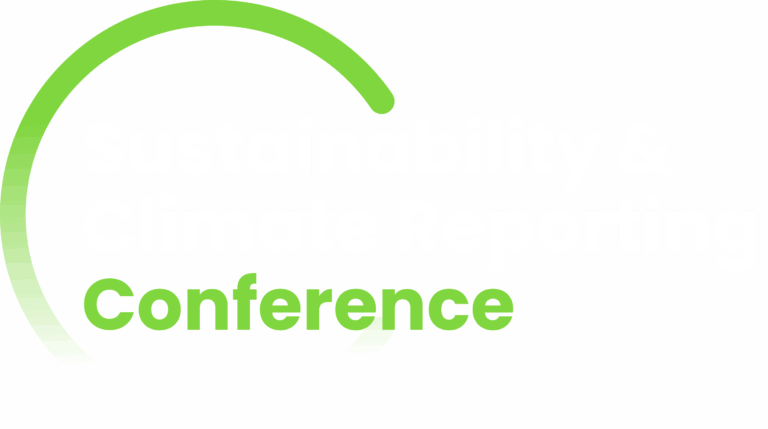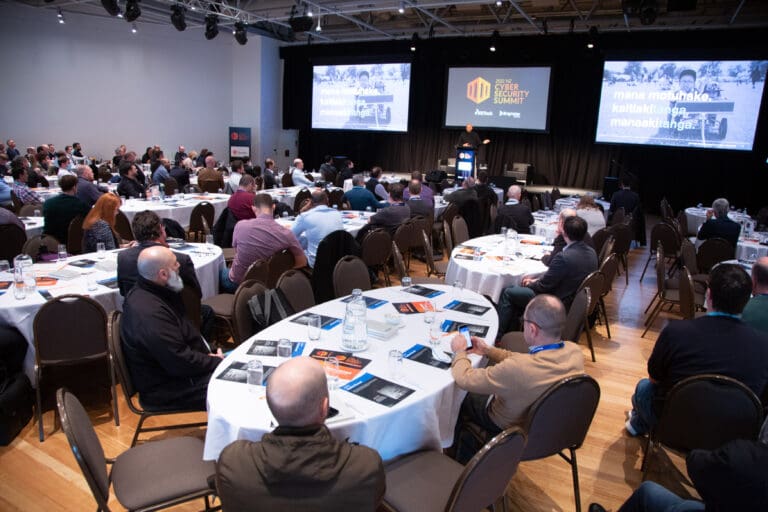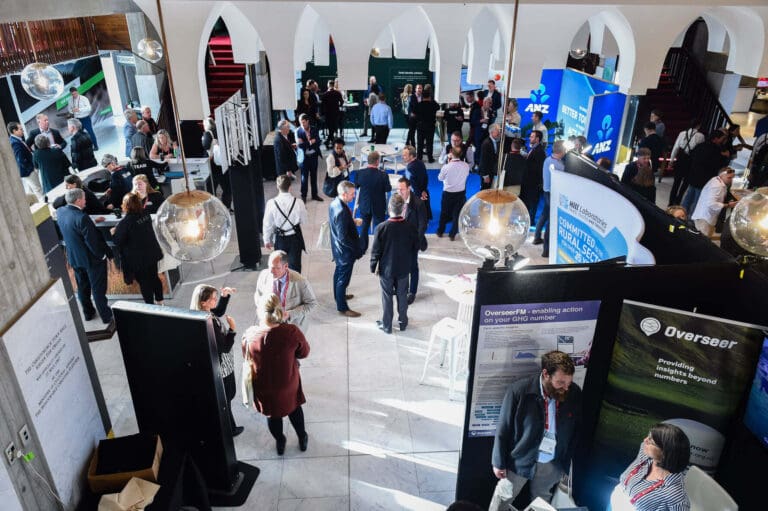
24 February 2026 | VIRTUAL EVENT
re:new Sustainability & Climate Reporting Conference
Unlocking best practices in climate sustainability reporting for greater accountability and smarter decisions
The Framework for Reporting Climate-related Financial Disclosures has been in force for a year, with an expected expansion to more entities. Organisations must understand their obligations for measuring and reporting climate risks. Meanwhile, a global movement is pushing businesses to report on broader sustainability impacts beyond emissions.
The Sustainability & Climate Reporting Conference will dive into the technical aspects of transparent sustainability and climate reporting. While climate and carbon remain key, the event will explore all ESG dimensions, including biodiversity and social impact.
Attend the event to learn how to develop systems and processes to produce the consistent, comparable, and quality data that will be required to become compliant and to explore how sustainability reporting be integrated with business strategy.

Why Attend?
- Addressing mandatory sustainability and climate reporting requirements, including TNFD
- Overcoming challenges with inconsistent and inaccurate data
- Aligning sustainability goals with business strategy, financial planning, and risk management
- Communicating sustainability efforts to foster trust through transparency
- Adapting to emerging trends in sustainability reporting and regulatory changes
Key themes
Strengthening Climate Reporting
Learn from the first two years of mandatory climate disclosures and prepare for the 2025 standard updates.
Managing Risk and Emissions
Gain practical insights into reporting Scope 3 emissions and assessing climate risk. Collect better data, price climate impacts, and turn disclosures into actions.
Governance and Global Alignment
Explore how boards, investors, and frameworks are driving future sustainability reporting. Examine board capability, investor expectations, and complying to ISSB and TNFD standards.
FEATURED SPEAKERS
Our 2026 key lineup brings together influential leaders and innovators in sustainability.
Check out more today.

Dr Belinda Mathers
Chief Science and Advisory Officer
Toitu Envirocare

Simon Tucker
Group Director, Global External Affairs
Fonterra

Mark Baker-Jones
Director, Policy & Regulation
Te Whakahaere
Agenda
Agenda to be announced
8:45 | Virtual platform opens |
9:00 | Opening remarks from the Chair Matt Raeburn, Asia-Pacific Climate Disclosures Lead, WSP |
9:10 | Opening address: Where are we now - mapping the current landscape of sustainability reporting and Climate Related Disclosure in New Zealand
Nicola Swan, Partner, Chapman Tripp |
9:50 | Case study: Identifying lessons from our first 2 Climate Statements
James Paterson, Head of Sustainable Finance, ASB Corporate Banking |
10:30 | Morning break |
11:00 | Understanding the reporting and assurance of Scope 3 emissions
Barbara Nebel, Chief Executive Officer, Thinkstep-anz |
11:40 | Analysing climate risk: Mapping financial impact through scenario analysis
Azura Patterson-Ng, Senior Consultant – Strategic Advisory (Climate Change & Sustainability), WSP |
12:20 | Lunch |
13:20 | Delivering Effective Leadership for Climate Related Disclosures and ESG reporting
Mike Burrell, CEO, Sustainable Business Council NZ |
14:00 | What do investors want to see? – Understanding investor and stewardship expectations around sustainability reporting
Mark Baker-Jones, Director, Policy and Regulation, Te Whakahaere Āhuarangi |
14:40 | Afternoon break |
15:00 | Understanding the role of reporting in the delivering global business aspirations to protect and restore nature and biodiversity
Stewart McKenzie, Principal Advisor - Carbon , Toitu |
15:40 | Analysing developing global climate and sustainability frameworks - what do these mean for businesses looking to deliver growth in international business
Kailyn Smith, Senior Manager, Sustainability Strategy & Climate Change, Fonterra |
16:20 | Summary remarks from the Chair & end of conference Matt Raeburn, Asia-Pacific Climate Disclosures Lead, WSP |
Speakers
Speakers to be announced

Stewart McKenzie
Read bio

Kailyn Smith
Read bio

Nicola Swan
Read bio

Mike Burrell
Read bio

Azura Patterson-Ng
Read bio

Dr Belinda Mathers
Read bio

James Paterson
Read bio

Barbara Nebel
Read bio

Matt Raeburn
Read bio

Mark Baker-Jones
Read bio
Sponsors
Sponsors to be announced
Sponsorship and exhibition benefits

Your reasons to exhibit
- Meet the people responsible for your next sale
- Meet & do business with new customers
- Host existing clients with our hosting packages
- Re-establish lost client relationships
- Showcase your products & services to qualified buyers
- Introduce your services to new sectors
- Launch new products
- Take advantage of a captive audience
- Maximise your brand awareness

Packages to suit your needs
Getting your brand in front of your audience is key – Our sponsorship packages can help you with that. With dedicated marketing schedules, a companion virtual platform, and packages that range from booths to bespoke activations, we have a solution that will fit your needs
- High-level partnerships and branding opportunities
- Speaking and thought leadership opportunities
- Hospitality sponsorships
- Gift and branding sponsorships
- Exhibition booths
Request our prospectus and take a look at the range of packages to suit your requirements.

Speak to the right audience
This event gives you direct access to senior leaders looking to expand their knowledge and practice. Sponsoring this conference is your prime opportunity for top quality lead-generation and face-to-face meetings with your key audience

Booth and exhibition spaces
Booth and exhibition packages are the perfect way to draw the attention of the audience and showcase your products and services. Have a central meeting space for people to find you. Talk to our team and secure your location on the floorplan before its too late!
Want to be a sponsor & exhibit on the day?
There are some exclusive opportunities to promote your company, products and services, at this leading event.
Contact us to request a prospectus or discuss the available options.
Contact sponsorship@brightstar.co.nz for more information or to book.
Want to join this virtual conference?
Multi Buy 3+ tickets
-
Must be from same organisation and book at same time. For valid tickets, payment by 24 February, 2026.
Individual Tickets
Registration Conditions
Ticket Terms
All prices are in New Zealand dollars ($NZD)
A surcharge of 2.5% + GST applies to credit card payments on top of the total amount.
Pre-Sale Tickets are valid only for the specific event for which they were purchased and cannot be transferred to other events. To remain valid, Super Saver and Early Bird tickets must be paid by date quoted.
Group ticket options are valid for registrations from the same organisation, booked at the same time.
By selecting any special pricing offer for classes of organisation, sector, or individuals or using any promotion code, you are asserting to the organiser your right to claim any such pricing offer, and acknowledge the organiser’s right to audit such claim and, if in the opinion of the organiser using its sole discretion the conditions for special pricing are not met, reject any registration.
For full terms & conditions, please visit https://www.brightstar.co.nz/terms-and-conditions
Make an enquiry
info@brightstar.co.nz



